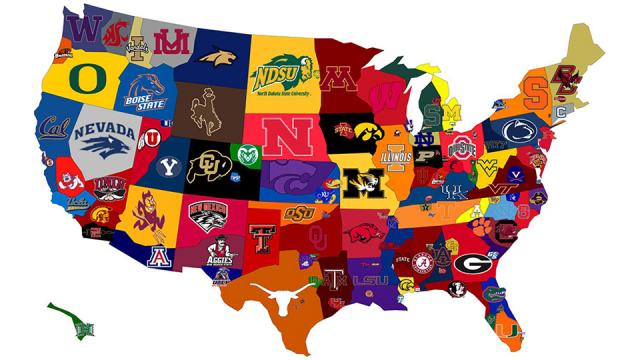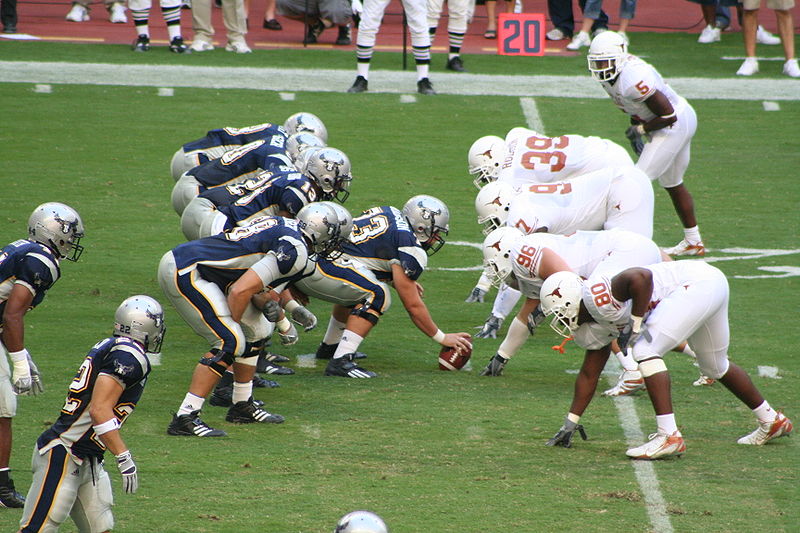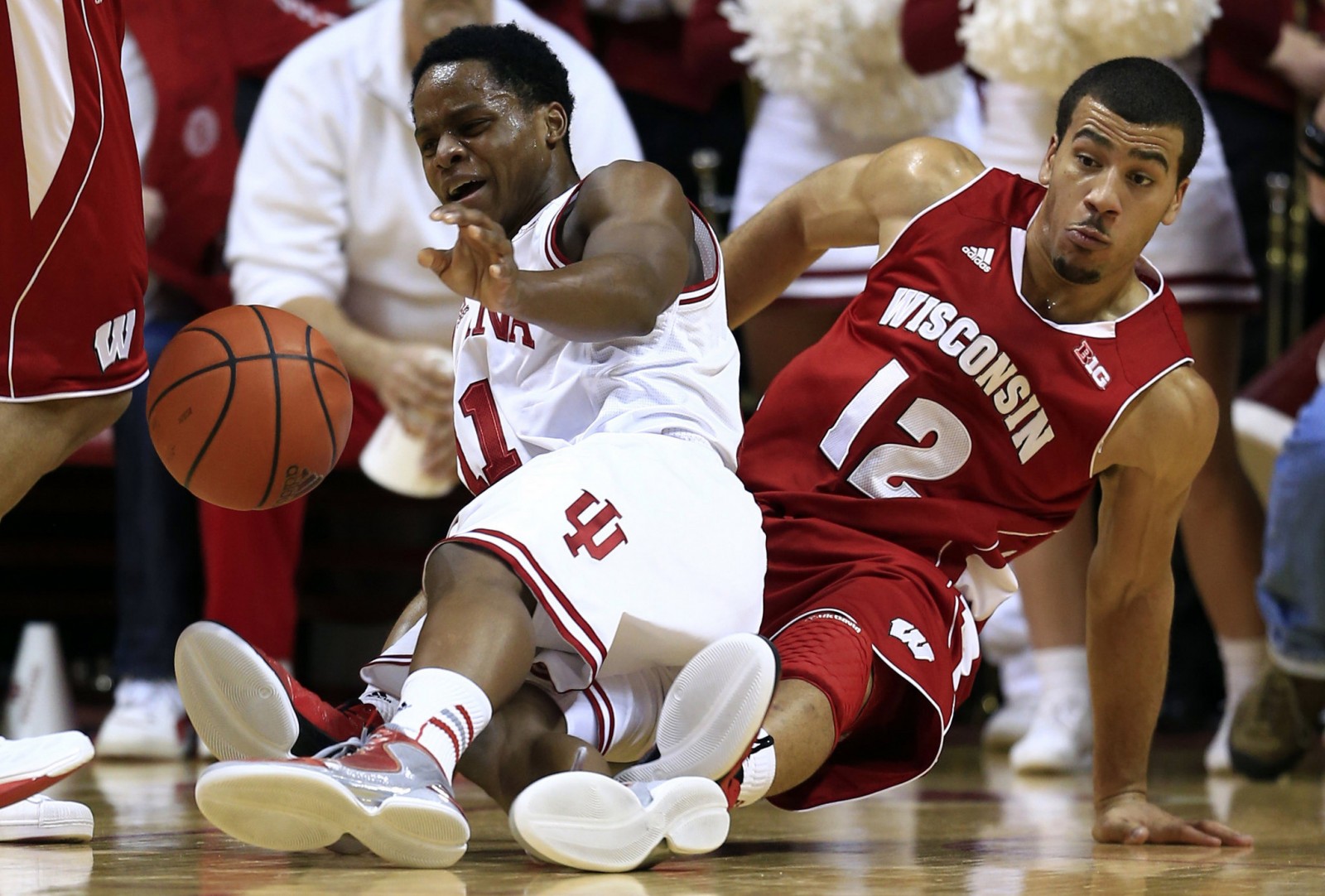
It’s game time for college football. Nowhere in the U.S. is football treated more like a king than in Texas. And to honor his majesty, one of Big Media’s biggest players—ESPN—has paid millions to the most lucrative publicly-owned brand: University of Texas Longhorn football.
Collegiate sports are increasingly becoming big business—enriching television networks and generating huge profits for struggling universities. This sounds like a win-win situation, right? Well, not exactly. The corporatization of higher education, especially athletics departments, has become alarming. The more money these sports teams make, the more they expect to be treated like royalty.
Case in point: the football program at the University of Texas at Austin.
Last year the UT football program made $163 million. Ahead of that, two years ago, UT signed a $300 million deal with ESPN creating a 24-hour sports channel named Longhorn Network (LN). The network is the exclusive carrier of all UT football and other sports games.
But it’s not just UT where this kind of mega media purchase is happening. The Los Angeles Times reports “…that ESPN has pumped $5 billion into college football in the past five years.”
The logic isn't hard to understand: Big Media invest in collegiate sports because televised football generates billions in advertising revenue. At the same time, it’s nearly impossible to find widely read critiques in Big Media of ESPN’s takeover of college sports because the network is itself owned by one of the biggest media conglomerates—The Walt Disney Company.
ESPN’s deal with UT means a rich athletics team is getting even richer. UT’s head football coach Mack Brown runs his empire like a monarch, and he’s handsomely rewarded like one too: Coach Brown is the highest paid Texas state employee with a yearly salary of more than $5.2 million.
Despite the fact that many of his players enjoy generous scholarships and other perks, Brown said in July, “I do think players need to be paid. These players are killing themselves and at Texas last year we made $163 million.”
How did Big Media respond to Brown’s idea? The biggest player in “sports journalism,” ESPN, didn’t criticize him for his lunacy. On the contrary, ESPN has a vested interest in ensuring that Brown and his team get handled with white gloves at all times, because the network is banking on the Longhorns generating revenue to pay back their Longhorn Network investment.
Brown’s idea of paying his players is exactly what happens in a society that celebrates further enriching the rich. While Brown wants to pay athletes for playing ball at a public university, institutions of higher learning across this country face budget cuts. UT alone eliminated hundreds of jobs.
As USA Today noted: “State appropriations to (UT) are falling by $92 million, a little more than 16%, in fiscal 2012 and 2013. The athletics program, meanwhile, saw annual athletics revenue grow by close to $53 million in the five-year period ending in 2010-11.”
At the same time, the Washington Post reported: “California has lowered its spending on state universities 12.5 percent during the past five years… South Carolina has reduced its support (to universities) 30 percent in that period, the deepest cuts in the country. Florida and Iowa have cut higher-education spending about 25 percent.”
It’s true that the Longhorn Network generated millions to offset state budget cuts to UT. But why should our elected leaders expect public universities to turn to extracurricular sports—and, by extension, corporations—to fund those institutions of learning that are the bedrock of our future?
Under the lens of classic democratic theory, an informed citizenry is required for a democracy to function. Voters must be informed in order to make good decisions at the polls. How does a democracy inform citizens? Through media and through schools, for starters. But if schools represent the foundation of a healthy democracy, then why are we under-funding them?
Instead of increasing education funding by eliminating corporate subsidies and reducing military spending, the corporatist politicians who have usurped our democracy have forced colleges and universities to close budget deficits by dramatically increasing tuition and turning to corporate money.
I’m like millions of other Texans. I love watching UT football. In fact, my partner and I are season ticket holders. But when I’m watching the game from the stands, I now understand the unseen market forces playing in the background. ESPN has transformed college football. What were once little football fiefdoms on college campuses are now full-blown wealthy empires—with their own kings who demand insane rewards for working at institutions that are the root of our democracy.
3 WAYS TO SHOW YOUR SUPPORT
- Log in to post comments















